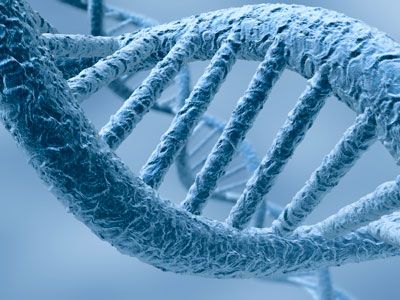Atezolizumab Shows Activity in Alveolar Soft Part Sarcoma
Patients with advanced alveolar soft part sarcoma demonstrated durable responses that occurred early following the initiation of atezolizumab, according to phase II trial findings presented at the 2018 CTOS Annual Meeting. Atezolizumab was also well tolerated and demonstrated a favorable safety profile.

Patients with advanced alveolar soft part sarcoma (ASPS) demonstrated durable responses that occurred early following the initiation of atezolizumab (Tecentriq), according to phase II trial findings presented at the 2018 CTOS Annual Meeting. Atezolizumab was also well tolerated and demonstrated a favorable safety profile.
“Although ASPS is rare, it typically occurs in young patients and has a poor prognosis that is often characterized by late metastases,” explained Geraldine O’Sullivan Coyne MD, PhD, a staff clinician in the Developmental Therapeutics Clinic, Division of Cancer Treatment and Diagnosis, at the National Cancer Institute (NCI).
The phase II trial planned to enroll patients ≥6 years (NCI center) or ≥18 years (all other centers) with histologically confirmed ASPS, including patient with newly diagnosed, unresectable, metastatic, and measurable disease. The patients were also required to show evidence of disease progression. Enrollment criteria included an ECOG performance status of ≤2 or Karnofsky performance status of ≥70%. Patients with central nervous system lesions and HIV-positive patients were allowed; however, patients with a history of autoimmune disease or who had received antiPD-1/PD-L1 therapy were excluded.
All enrolled patients received atezolizumab intravenously over 60 minutes on day 1 of a 21-day cycle. Adults were to receive 1200 mg and pediatric patients were to receive 15 mg/kg up to a maximum of 1200 mg.
Of the 22 patients enrolled, 10 were female, 7 patients had not received prior therapy, 15 had received systemic therapy, and 2 patients had received monoclonal antibodies. The median number of prior treatment regimens was 3 (range, 1-10). The primary tumor was located in the head and neck in 2 patients, trunk in 8, extremity in 11, and 1 primary location was ‘other’. Just 1 patient had brain metastasis. No pediatric patients met the inclusion criteria; therefore the median age was 32 years (range, 22-52).
The trial’s primary endpoint was to determine the objective response rate (ORR) of atezolizumab in adult patients ≥18 years and in pediatric patients ≥6 years with advanced ASPS. Secondary endpoints included duration of response (DOR) and progression-free survival (PFS), both using RECIST v1.1 criteria, correlation of response with expression of potential immune biomarkers in paired biopsies, and comparison of RECIST v1.1 versus immune RECIST criteria in patients with ASPS.
The Simon 2-stage trial design required ≥3 responses (12.5%) among the 22 evaluable patients for this regimen to proceed with further testing in this disease.
As of the October 30, 2018, data cutoff date, the ORR was 42%, which included 8 partial response with an additional 1 that was unconfirmed; 9 patients achieved stable disease. No complete response was observed and 1 patient experienced disease progression.
The median time to first response was 5 cycles (range, 4-19) and the median time on treatment was 11 cycles (range, 1-25). Efficacy results were too early for assessment in 3 patients.
“The first responses were observed fairly early, after a median of 5 cycles,” Coyne commented.
The safety analysis uncovered no new safety signals, with mostly grade 1/2 adverse events (AEs) reported. The most common AEs (TEAEs) reported in ≥10% of patients included fatigue in 5 patients, and dysphagia, hyperhidrosis, hypothyroidism, insomnia, decreased lymphocyte count, pain in extremity, decreased platelet count, skin hyperpigmentation, and decreased white blood cell count were each reported in 3 patients. Grade 3 AEs included fracture, pain in extremity, and maculopapular rash, which each occurred in 1 patient. No grades 4/5 AE were reported and no patients discontinued the study drug.
“This is an ongoing trial that is still actively enrolling patients in this cohort. We plan on additional patient slots, as well as additional cohorts in clear cell sarcoma and chondrosarcoma,” Coyne noted. “We would really like to enroll and treat pediatric patients; perhaps the protocol can be further adapted to encourage enrollment.”
In response to a question regarding biomarkers, she stated that, “we did not see an association between TMB [tumor mutational burden] and atezolizumab response; actually, this patient population as a whole had low TMB.”
“Our biomarker study is ongoing. We are looking at immune biomarkers in paired biopsies taken at baseline and up to 4 weeks after the last dose of study treatment. Response will be correlated with expression of potential immune biomarkers in paired biopsies.”
Reference:
Coyne GO, Sharon E, Moore N, et al. Phase II study of atezolizumab in patients with alveolar soft part sarcoma. Presented at: 2018 CTOS Annual Meeting; November 14-17, 2018; Rome, Italy. Paper 021.